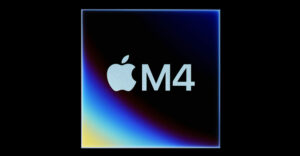
IBM has won a key ally in its quest to turn around the fortunes of its PowerPC processor, which suffered last year whenApple announced it would useIntel chips instead in its machines.
Freescale Semiconductor, which helped develop and proliferate the Power platform, has become the latest company to joinPower.org, an association of technology companies working on ways to drive innovation around IBM’s Power Architecture, Big Blue said.
The Power.org community, which was created last year around the time that Apple announced it would shift its notebook and desktop computers to Intel’s chips, now has more than 41 companies and some 10,000 developers working on applications and other add-ons, IBM noted.
Freescale’s joining is “a tipping point” for the organization that comes “at a time of great momentum,” remarked Nigel Beck, the chairman of Power.org. Because Freescale has such extensive experience in building chipsets, its decision to back the effort has “the effect of broadening the Power Architecture technology ecosystem and leveraging the combined expertise of each company,” he added.
Power.org will tap Freescale to work on a range of applications for the architecture, from low-cost, high-volume consumer electronics to high-end enterprise servers and related applications. Freescale, once a Motorola subsidiary, is best known for its wireless chipsets and complex products sold to car makers to power automated systems.
Recovery Through Speed?
IBM and Freescale have their eyes on the fast-growing market for home-networked computing and entertainment products — a sizeable challenge since the Power chips are currently found most often in high-end enterprise gear, where they compete with products from Sun Microsystems and Intel’s Itanium line.
The Power chip does have a foothold in the gaming market, with Nintendo and Microsoft among those that include the chipsets in their game boxes.
The new Power 6 processors slated for release halfway through 2007 will have clock speeds of 4 gigahertz (Ghz) to 5 GHz, IBM said in a separate announcement on Tuesday, making them close to twice as fast as any chip now on the market. The chips manage to avoid the overheating problems that other processors experience when they reach similar speeds, Big Blue said.
Meanwhile, IBM may need to find a way to jump-start interest in its reduced instruction set computer (RISC) chips, which have lost market share in the past year.
In addition to IBM and Freescale, other Power.org members includeChartered Semiconductor Manufacturing, Novell and Red Hat.
Big Blue intends to grow the market for Power Architecture products by turning over some control of its design and evolution to a newly formed Power Architecture Advisory Council. Freescale will take a seat on that council.
Though the group doesn’t bill itself as an anti-Intel movement, it’s clear that battling the market-dominant chipmaker is a key reason for its existence.
Flicking the Switch
The repercussions of Apple’s move to Intel will be felt for some time. While the impact on Apple is still uncertain, it’s also unclear what the future holds for IBM’s Power systems, said Insight 64 analyst Nathan Brookwood.
“It might be an architecture that you find only in certain places, like those top-end servers, in the future.” he said.
The shift from PowerPC to Intel cost IBM and Freescale about US$300 million a year together, according to Gartner Analyst Tom Starnes. That is not enough to irreparably harm either company, but it does represent a significant loss — and one that likely could have been avoided, he suggested, given the turmoil caused by the switch.
Apple is no doubt eyeing future product developments that can be more easily brought to fruition with Intel as a partner.”Chip makers have to do a better job of responding to customer needs to stop them from changing processors,” Starnes said.




















































